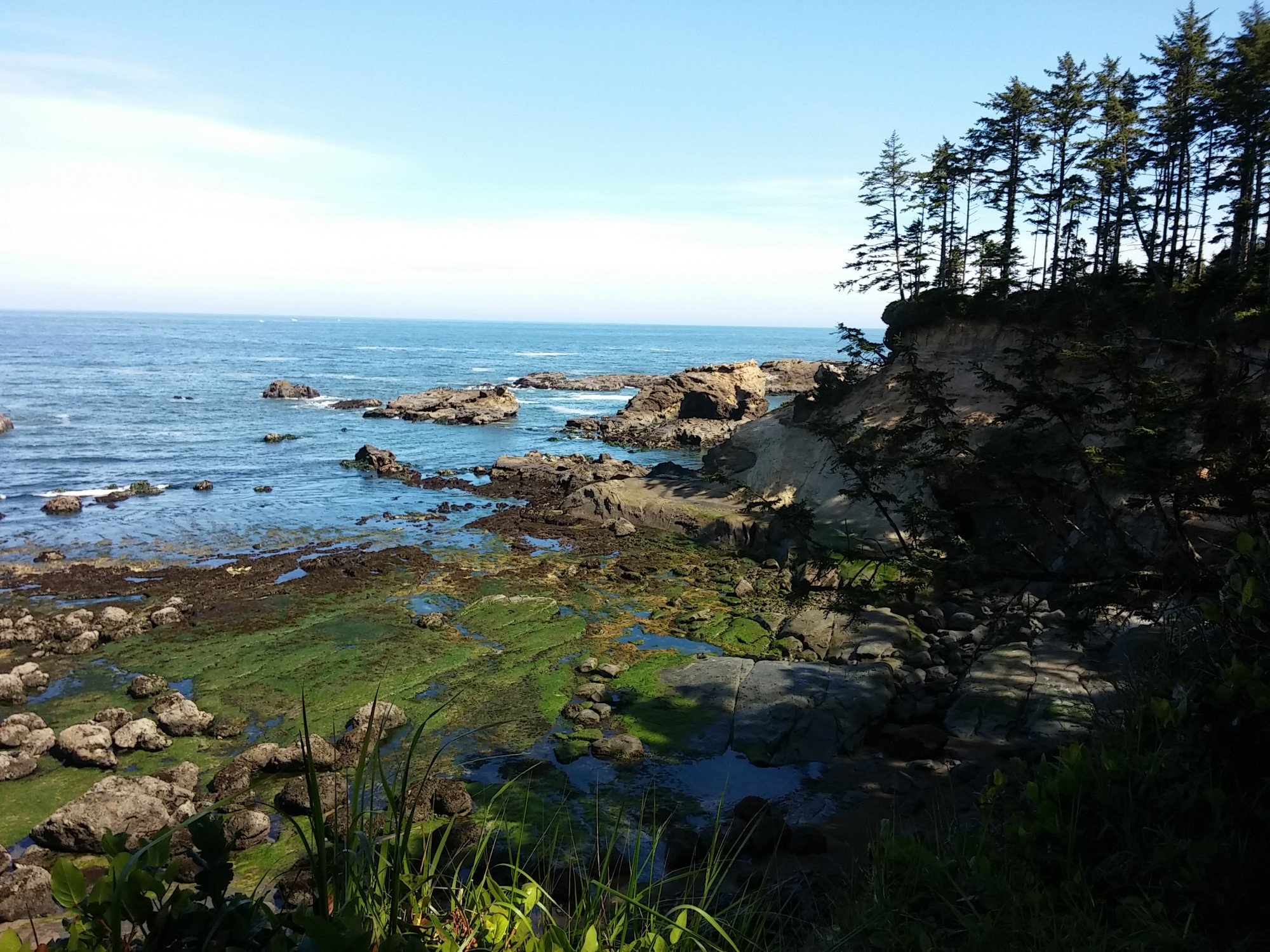
Rocky Habitat
We can protect Oregon’s rocky coastal habitats, helping to ensure that Oregon’s amazing tide pools, underwater kelp forests, nearshore reefs, and offshore rocks and islands continue to inspire future generations.
Rocky Habitats
Rocky shores, reefs and offshore rocks and islands make up about 41% of our Oregon coastline. State and federal policies, strategies, and rules have long been in place to manage and protect coastal habitats. One of these strategies, Oregon's Rocky Habitat Management Strategy was recently updated.
The newly adopted strategy includes the ability for individuals and communities to be an active part of designing and implementing new goals and management based on the best available information.
Why this matters:
1. Visitors Matter
Our rocky habitats are one of the primary attractions of our tourist economy. Managing access and accountability will help to keep these areas pristine for years to come.
2. Residents Matter
We live here in part because of the quality of life provided by our beloved coastal landscape. We have an opportunity to support the unique wildlife and scenery for our community’s ongoing livability.
3. Habitat Matters
Visitors to this area can unintentionally cause damage if they don't know how to safely and respectfully interact with our tide pools and surrounding wildlife. A designation can provide greater levels of education to tourists to keep them from trampling over sensitive natural areas and disturbing wildlife.
4. Education Matters
We will be able to offer education opportunities for the local community, including our children for whom we can inspire a love of learning and understanding of local wildlife.
5. Wildlife Matters
We can protect our wild neighbors like Black Oystercatchers, pelicans, sea lions, and seals that depend on our rocky coastal habitats.
What we are doing
Working together to support new protective designations, we can create more awareness of rocky habitats, support important research to better understand our changing ocean, and keep these amazing areas safe while providing equitable public access.
Last year, we won approval for our proposals to designate Cape Lookout and Cape Foulweather as marine conservation areas. This year, we’re engaged in developing management plans for each site. In cooperation with the Department of Land and Conservation Development’s new Rocky Habitat Coordinator, we’ve formed a “Rocky Habitat Partners” group and meet monthly with other community groups engaged in the same process, sharing ideas and addressing problems we have in common.
What’s next?
We will be working with other community interests to begin planning implementation of the educational and community science recommendations for the Cape Foulweather Complex MCA and Cape Lookout MCA. There are also opportunities for community involvement in developing a management plan for the newly designated Fogarty Creek MCA.
The first of two management plan workshops for each site have been scheduled. The
Cape Lookout Management Plan workshop will be held September 20 th from 5:30 to
7:00 pm at the Department of Forestry in Tillamook. The Cape Foulweather and
Fogarty Creek Management Plan Workhop will be held October 2 nd from 5:30 to 7:00
pm at the Depoe Bay Community Hall.
Get involved!
Contact us if you would like to volunteer!
See our FAQs to learn more about rocky habitats!
Helpful Links:
Rocky Habitat Management Strategy Proposals Adopted!
Birds that rely on our coastal habitats
Oregon Ocean Information: Rocky Habitat Management Strategy
Citizen's Guide to Oregon's Coastal Management Program







